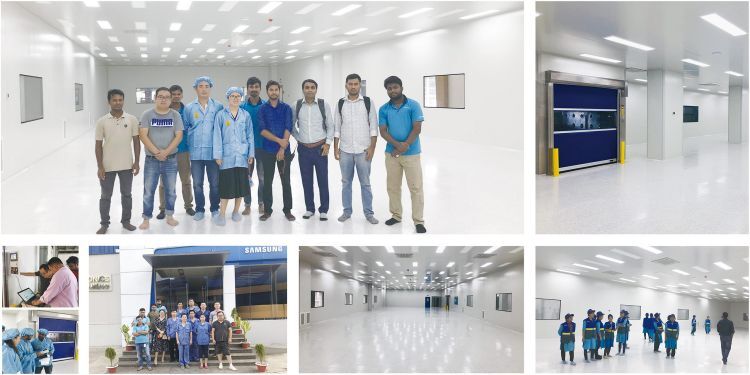Dust-Free Workshop Company: Delivering Clean Manufacturing Environments
- 2024-01-24
- View 10
For manufacturers of sensitive products, controlling airborne particulates is essential. Partnering with an experienced dust-free workshop company enables creation of optimized facilities for clean manufacturing.

Introduction to Dust Control
Airborne dust and particles can ruin products, equipment, and manufacturing processes. Dust control minimizes contamination through air filtration, pressurization, employee protocols, and proper facility design. This protects product quality and equipment while ensuring clean, safe workspaces.
Services Offered by Dust-Free Workshop Company
Reputable dust control providers offer end-to-end services:
Facility Design
They engineer workshop layouts optimized for dust elimination based on the manufacturing process.
Air Filtration Systems
They specify and integrate specialized filtration systems tailored to facility size and required cleanliness levels.
Routine Maintenance
They establish schedules and procedures for changing filters, cleaning equipment, monitoring air quality, and verifying system performance.
Staff Training
They train employees on maintaining cleanliness standards and proper procedures for the dust-free environment.
Key Technologies for Dust Elimination
To create dust-free facilities, companies utilize technologies like:
Air Showers
Air showers remove particulates from workers before entering clean areas.
Negative Air Machines
These filter air and generate pressure differentials to contain contamination.
Laminar Flow Systems
Laminar flow hoods provide ultra-clean air in localized workstations.
HEPA Filters
High efficiency particulate air (HEPA) filters remove 99.97% of particles ≥ 0.3 microns.
Applications of Dust-Free Facilities
Industries requiring dust control include:
Food Manufacturing
Dust can contaminate food products, making dust removal critical.
Pharmaceutical Production
Pharmaceuticals require ultra-clean environments unaffected by particulates.
Electronics Assembly
Airborne particles damage sensitive electronics. Dust control protects components.
Precision Machining
Machined parts require micro-level precision impossible in dirty conditions.
Partnering with the Right Dust Control Provider
When choosing a provider, ensure they offer:
Strong engineering experience specifically for contaminant control.
Turnkey services covering design, build, maintenance, and training.
Solutions scaled to your exact dust removal needs and budget.
Compliance with all local codes and industry regulations.
Evaluating Costs and Benefits
Dust control requires significant investment. Companies should:
Carefully project costs for system purchase, installation, operation, maintenance, and training.
Analyze productivity and revenue gains from higher product quality, reduced rejects, and improved uptime.
Compare potential financial losses from continued contamination.
This financial analysis helps determine the ideal investment level in dust control. Ongoing costs can be justified by the significant benefits.
Conclusion
For manufacturers, controlling particulates is essential for protecting products, equipment longevity, employee health, and operational efficiency. Investing in dust removal technologies and partnerships with specialized engineering companies provides major financial and operational benefits.
FAQs
Q: What about dust control for non-manufacturing facilities?
A: The same principles and technologies apply. Dust control can improve air quality in offices, warehouses, utilities, and other indoor environments.
Q: How often should air filtration systems be maintained?
A: Most filters require replacement or cleaning every 6-12 months. Pre-filter cleaning may be needed more frequently. Providers establish optimal maintenance schedules.
Q: Can these technologies eliminate all dust in a facility?
A: Complete elimination is impossible, but they can reduce particulates to acceptable levels based on the industry and products. The cleanliness goal determines system requirements.
Q: How can employees help maintain a dust-free environment?
A: Proper cleanroom gowning/de-gowning, minimizing particle-shedding behaviors, reporting system issues, and following all standard operating procedures. Training is key.
Kwang Cleanroom is proud to offer examples of a variety of our cleanroom projects below. Cleanroom ISO Class Standards, ISO 4 Clean Room, Clean Room Development, Clean Room for Physics Laboratory, Hospital Cleanrooms, Cleanroom Regulations, Cleanroom Humidity Control.
